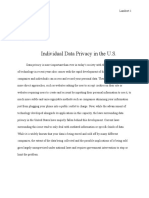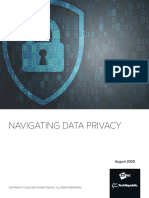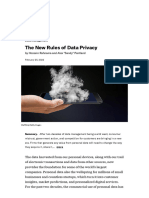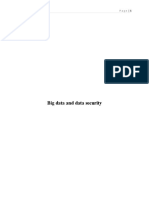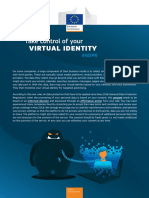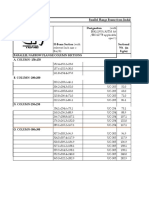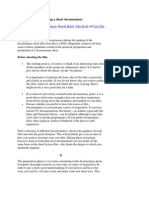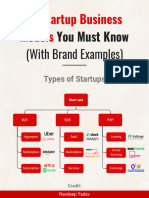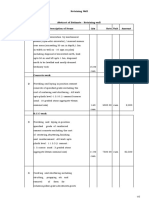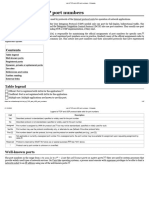Data Privacy
The digital age has brought unprecedented access to information and new online services. And in
exchange, people have proven very willing to provide personal information and to have their online activities
monitored. But is it worth it? As Wired reports, more and more people are questioning this trade-off:
The US has found itself in the middle of a data privacy awakening, and you can credit the recent spate
of headline-grabbing scandals as the kick-starter. Cambridge Analytica illicitly took the personal
information of up to 87 million Facebook users and turned it into targeted political ads. And Equifax let slip
the sensitive details of 148 million Americans because it couldn’t be bothered to patch a known
vulnerability.
The public’s concern is also shared by governments. In many jurisdictions, there are bold regulatory moves
being made to protect privacy and install checks on the use of personal information. The most robust move
is the EU’s recently implemented General Data Protection Regulation, or GDPR. As Forbes describes:
In simple terms, GDPR requires that all customer data be portable. Essentially, organizations must be
capable of honoring their customers’ requests to delete their personal information or transfer it to another
system if they choose another supplier. They must also be able to provide an audit trail to confirm that the
data was handled properly. It’s worth being diligent because slipping up can result in huge fines up to €20
million or 4% of a company’s annual turnover.
�GDPR ushered in a wave of new terms of use and privacy agreements, as companies
tried to adapt. The new regulations spooked some American companies, particularly
news organizations, which temporarily suspended European access to some sites. But
the big impact has been in the tech sector, as noted by the Guardian:
The bulk of the response to the legislation has been a substantial number of
complaints against high-profile companies, such as those against Facebook and
Google filed by privacy campaigners at consumer rights organizations. Those
complaints accuse the two companies of forcing consumers into providing “consent”
for data processing in a “take it or leave it” deal. Despite having ample time to
prepare for the new regulations, companies are still trying to figure out the full
ramifications of the changes. And not all companies are impacted equally, as Forbes
explains:
�All tech giants are trying to wrap their heads around GDPR. Most of them are making individual
businesses and publishers responsible for the data they collect. This may prove difficult for some of the
smaller publishers since the fines for non-compliance are quite steep and they may not be able to afford
not to get it right.
Concern for digital privacy isn’t exclusive to the EU. And the GDPR has only served to amplify calls for U.S.
governments to address the issue. The State of California recently enacted its own law aimed at
protecting consumers’ data privacy. As Reuters notes, the response from the tech industry and other
concerned groups has been mixed:
According to a Google spokesperson: “We appreciate that California legislators recognize these issues and
we look forward to improvements to address the many unintended consequences of the law.” The bill
has also divided many privacy and consumer advocates. Some see it as a landmark law that will shake up
the national debate over privacy and data. But others have dismissed it as watered-down and would
have preferred a ballot measure with even tougher restrictions on data collection.
�Despite all the confusion around the new regulations, it’s clear we’re in the middle of a major shift.
Our approaches to digital privacy are constantly being renegotiated. Some believe the key to
privacy lies in blockchain technology, which is like a digital ledger that allows information to be
distributed but not copied. As Fortune describes, this technology may transform our relationship
with our own information:
Today, we give away our data to companies like Facebook for free, and they monetize that
information without sharing their revenues. In a blockchain system, your data is your own and
only you have the private keys and ability to access this information. Then, you can share and
monetize that data as you wish.


